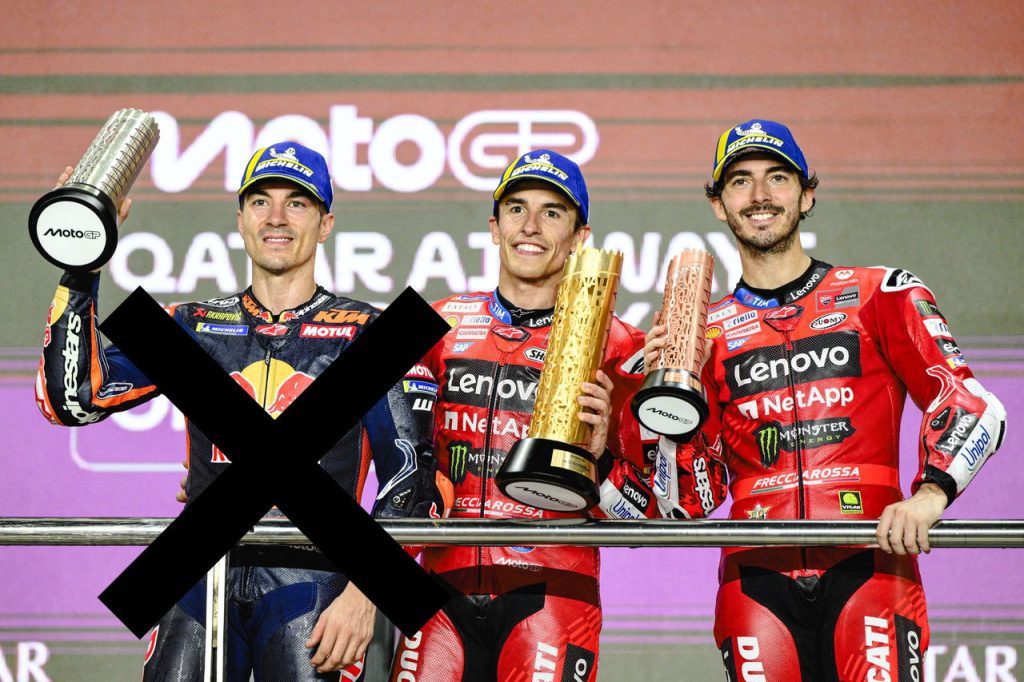Recent Tyre Penalties in MotoGP
Fabio di Giannantonio at Valencia 2023, Fabio Quartararo at Jerez 2024, and Maverick Vinales at Qatar 2025 have all experienced the disappointment of losing hard-earned top-three finishes. Despite celebrating with their teams and receiving trophies, they were penalized post-race for tyre pressure violations.
Since the introduction of punishment for tyre penalties in mid-2023, teams have improved their pre-race pressure estimations. However, unexpected weather changes or an impressive performance from a rider can still influence these calculations significantly.
The Impact of Unexpected Race Dynamics
It remains unclear just how close Vinales came to meeting the minimum pressure requirement of 60% of race laps. His five laps in clear air at the front could have contributed to this penalty. “It’s a nightmare,” stated MotoGP editor Pete McLaren, discussing the anxiety that comes with the possibility of post-race investigations due to tyre pressure.
McLaren explained that the pace Vinales set while leading could have been detrimental. Teams are left to guess tyre pressures, and if they set them too low, they risk penalties like this, especially when a rider surprises everyone by leading unexpectedly.
Problems with Current Regulations
“This situation effectively kills the chances of seeing unexpected results because teams cannot realistically prepare for a scenario where one of their riders leads for extended periods,” added senior journalist Lewis Duncan. Despite a challenging race weekend for KTM, Vinales excelled but faced repercussions due to team miscalculations regarding tyre pressures.
Criticism of the tyre regulations also arose, with McLaren questioning the necessity of such penalties. He suggested that the rules could be revised to allow in-race warnings or penalties rather than post-race adjustments, which often seem arbitrary and lead to unresolved penalties that dampen race excitement.
Calls for Fairer Penalty Systems
Both journalists argued for a grading system of penalties that reflects the severity of the infractions. Duncan emphasized that the current hefty 16-second penalty doesn’t account for race dynamics, leading to unfair consequences for riders depending on race circumstances. A more proportional response would ensure fairness across different race situations.
In conclusion, the implications of post-race penalties remain complex. As McLaren pointed out, had circumstances shifted slightly, another rider could have benefited from Vinales’ penalty, leading to unresolved questions surrounding fairness and competitiveness in MotoGP races.



